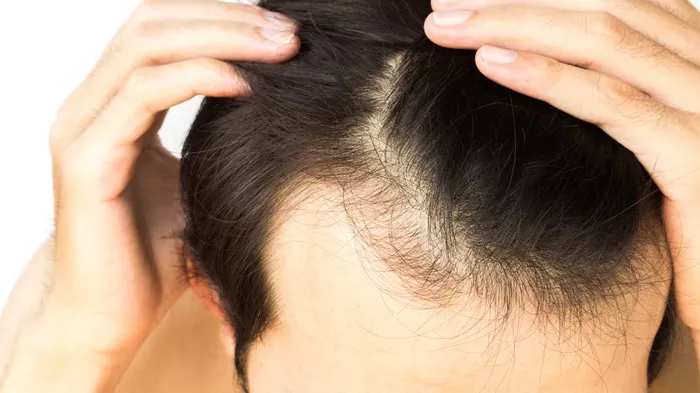Seborrheic dermatitis, a common skin condition, can wreak havoc not only on your scalp but also on your self-esteem due to the associated hair loss. Characterized by red, itchy, and flaky skin, this condition can trigger hair thinning and shedding. If you’re grappling with hair loss due to seborrheic dermatitis, worry not—this article delves into effective strategies to put an end to your hair loss woes.
Understanding Seborrheic Dermatitis and Hair Loss
Seborrheic dermatitis is a chronic inflammatory skin condition that primarily affects areas with high sebum production, such as the scalp, face, and chest. It results in redness, scaling, and itchiness, which can contribute to hair loss.
When seborrheic dermatitis strikes the scalp, it can disrupt the hair growth cycle. Inflammation and excessive shedding of skin cells can obstruct hair follicles, leading to hair loss. Additionally, the constant itching and scratching can weaken hair strands, making them more prone to breakage.
Developing an Effective Hair Care Routine
The following are effective hair care routines:
1. Gentle Cleansing
Opt for a mild, sulfate-free shampoo designed to target seborrheic dermatitis. Frequent washing can help remove excess oil and flakes from the scalp, promoting a healthier environment for hair growth.
2. Warm Water Rinses
When washing your hair, opt for warm water rather than hot water. Hot water can exacerbate inflammation and contribute to dryness, which can worsen the condition.
3. Avoid Over-Scrubbing
While it may be tempting to vigorously scrub your scalp, this can actually worsen the inflammation. Gently massage the scalp with your fingertips using circular motions to prevent further irritation.
Incorporating Scalp Treatments
Here are the products used for scalp care:
1. Medicated Shampoos
Look for shampoos containing active ingredients like ketoconazole, selenium sulfide, or pyrithione zinc. These ingredients have antifungal properties that can help manage seborrheic dermatitis and reduce hair loss.
2. Salicylic Acid
Salicylic acid-based shampoos can aid in exfoliating the scalp, unclogging hair follicles, and reducing scaling. However, use these products sparingly to prevent excessive drying.
3. Tea Tree Oil
Tea tree oil has natural antifungal properties and can be a beneficial addition to your hair care routine. Mix a few drops with a carrier oil and apply it to your scalp, allowing it to sit for a short time before washing.
Dietary Considerations for Hair Health
Here’s what to keep in mind when it comes to diet:
1. Anti-Inflammatory Foods
Incorporate foods rich in antioxidants and omega-3 fatty acids, such as fatty fish, nuts, seeds, and colorful fruits and vegetables. These foods can help reduce inflammation throughout the body, including the scalp.
2. Hydration
Staying hydrated supports overall skin health, including the scalp. Drink an adequate amount of water daily to keep your skin and scalp well-hydrated.
3. Limit Sugar and Processed Foods
Excessive sugar and processed food consumption can contribute to inflammation. Reducing these foods in your diet can have a positive impact on both your skin and hair health.
Seeking Professional Guidance
If seborrheic dermatitis and hair loss persist, consult a dermatologist. They can accurately diagnose the condition and recommend appropriate treatments, including prescription-strength shampoos, topical creams, or oral medications.
Your dermatologist can help you identify triggers that worsen seborrheic dermatitis, such as certain skincare products or environmental factors. Avoiding these triggers can help manage the condition and prevent further hair loss.Consistent Follow-Up
Regular follow-up appointments with your dermatologist can ensure that your treatment plan is effective. They can make adjustments as needed based on your progress.
See Also: Exploring the Link: Can Vitamin D3 Fuel Hair Growth?
Conclusion
Facing hair loss due to seborrheic dermatitis can be disheartening, but with the right strategies, you can regain control over your scalp health and hair growth. By understanding the relationship between seborrheic dermatitis and hair loss, implementing a gentle hair care routine, incorporating scalp treatments, making dietary adjustments, and seeking professional guidance, you can effectively combat the challenges posed by this condition. Remember, consistent care and persistence are key in reclaiming a healthy scalp and promoting the regrowth of your precious hair.


